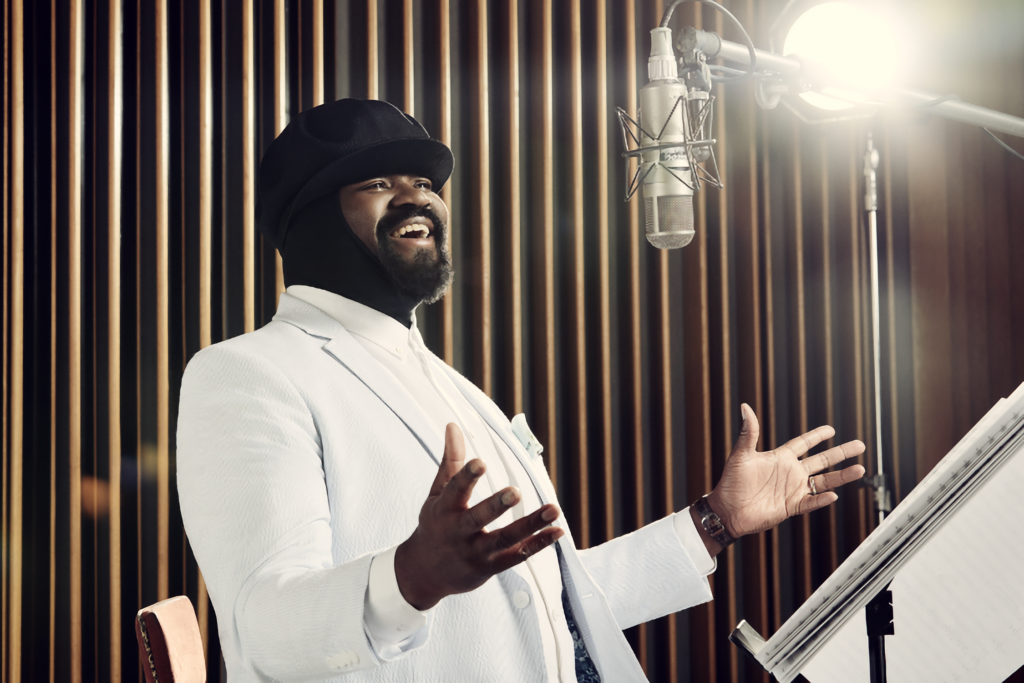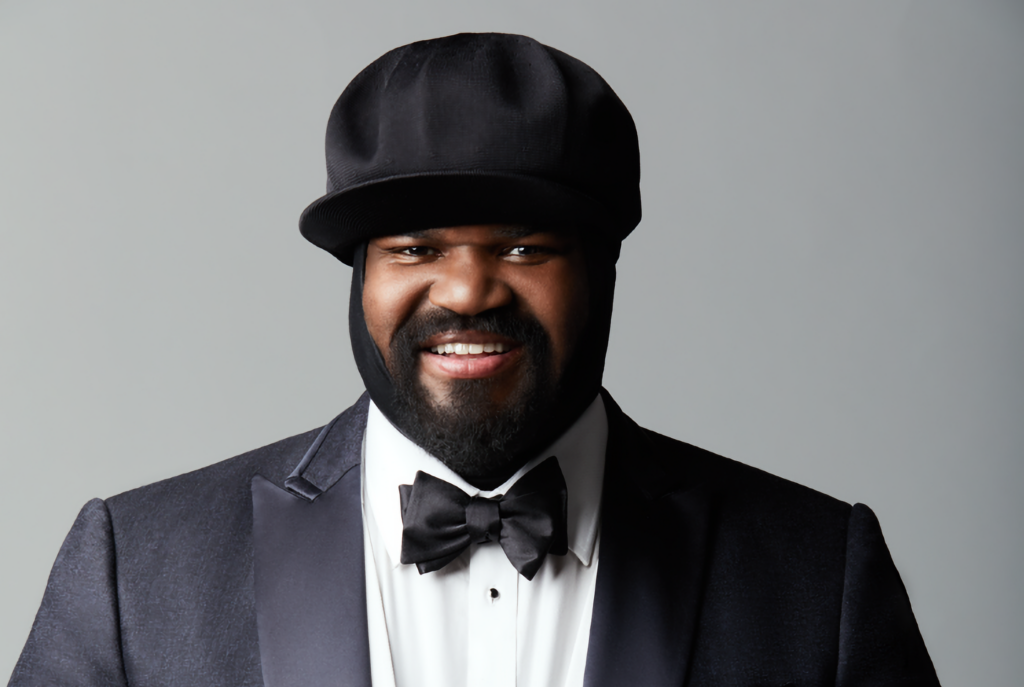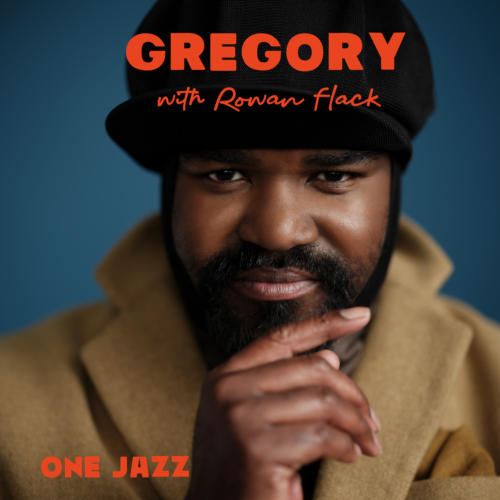Interview by Rowan Flack
Images by Erik Humphrey
I was writing about the absence of my father; I was writing about the love that I had for my mother
California sunlight pours through the bay window behind Grammy Award-winning jazz vocalist Gregory Porter. As he greets me, each hello melodically lands on a different pitch. He smiles modestly through the screen and apologises, revealing a rich and honeyed American accent: “I’m getting back into the Zoom game.”
Resting next to a floral cushion, he picks up a pair of red gardening scissors and tells me how he’s spent his time recently observing life through nature. He admits he used to think hobbies such as gardening were not career-building but now reflects on how the tranquillity of early mornings, sunsets and sunrises all influence his songwriting process and feeling for music.
After spending more time at home recently with his wife and two sons, he says: “You miss simple things, like mornings with your loved ones”, although he’s back on the road in a few days. His European tour starts on 26 March 2025 with 27 shows in seven countries, including 12 nights in the UK, three of which are at London’s Royal Albert Hall (28 April–2 May). He hints at new music, but on reflection, considers the impact, asking himself: “Do you want to release things into the universe before it’s time?”

Born in Sacramento, he moved to Bakersfield as a young boy. His mother, a minister in a local church, was an enormous influence in encouraging his pursuits. At six years old, she told him: “Chest up, head up, stand proud, Baby, and sing with understanding”. He pauses, recalling his response as a young boy: “I was like, damn, what does that mean?”
He felt great loss early in his life—after earning a football scholarship to San Diego State University, an injury ended his athletic career. In search of a new personal identity, he worked at his brother’s cafe in Brooklyn and through encouragement from his mother, began performing at local New York jazz clubs. Tragically, Porter’s mother passed away when he was 21.
His Broadway debut in It Ain’t Nothin’ But the Blues led to a first album, Water, in 2010, and he’s since gained international acclaim as a jazz singer. He’s taken his mother’s teachings in his stride and wants to heal people: “I think that would be my success.”
It was at his father’s funeral that he truly got to know him: “Person after person spoke about him…and I was like, God, man, I wish I had known this guy.” Having never considered that his father had given him anything, he learned that his father had wanted to be a singer and realised, that it was he who gave him his voice. In writing Dad Gone Thing, he explored what a “cool guy” he was.
After the loss of his parents and career, Porter found solace in music and spirituality. Big hand gestures accompany his voice as he lists his influences—Donny Hathaway, Marvin Gaye, Nat King Cole, Jimmy Witherspoon, and Lou Rawls—whose voices, like his own, were shaped by the traditions of the Black American church. He speaks candidly about wanting to balance the sacred and profane in his songwriting but acknowledges with a smile that his mother would think that blasphemous.

Sitting comfortably on his plush cream sofa, he explains how his mother’s messages have inspired his writing. He looks down momentarily and admits that he didn’t plan to have all his records in front of him. While picking up a copy of his third studio album and Blue Note debut, Liquid Spirit, 2013, he chuckles: “Speaking of!” This album, which won a Grammy one year after its release, is inspired by his mother’s sermons, where she used water as a metaphor for love.
He smiles: “These childhood and foundational themes that my mother put into me, somehow, whether I like it or not, they pour out of me in song.” There is an overarching theme of turning loss into legacy: “I was writing about the absence of my father; I was writing about the love that I had for my mother.”
He picks up another record and laughs. This time, the album is Take Me to The Alley. He describes the alley as: “a dark…lonely place” with “hungry…suffering people.” His mother often paused church for him and his seven siblings to take clothes to the homeless and he believes this has shaped the type of person he has become. “I could make it some sexy song about making love in an alley,” he says jokingly, but adds: “Something in me also has this love of humanity.”
When asked how he so brilliantly shapes his messages through song, he responds with a melody: “I miss my mornings with you, the morning coffee like a poet’s corner”. For Porter, it’s not about the theoretical lines and dots, but, almost conversationally, finding the melody that matches the emotion.
Throughout his life, he tells me he gradually came to understand his mother’s words, as he puts it: “finding meaning” in his voice. “As you grow, as a young man, as a father, you put these things that are in your life, into your music and when you sing with this understanding, then it will never be a lie”.
Listen to Rowan Flack’s special show built around this interview, debuting 8pm (UK) Tuesday 15th April on One Jazz.
More Posts for Show: This Is Always

